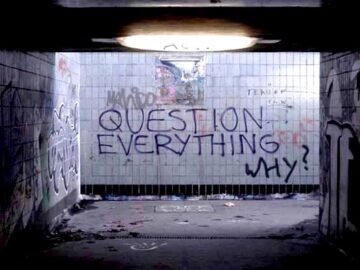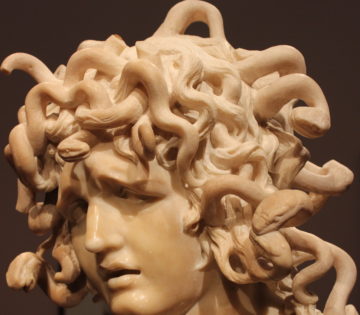by Marie Snyder

Maybe there are seeds of potential deep within ourselves, but maybe there’s nothing there but a collection of signals. Regardless the outcome, we need to dig in to see what we can find.
In several classes I took last term, the idea of a core self that’s fluid came through discussions of the postmodernist view of the self. But I’m not convinced we’re still living the pomo life, and I’m not sure we want to be.
Taking liberally from Charles Taylor, and others, it appears that we once had some communal ideals, then flipped from seeking answers from God to proving them with science, then realized some pretty major problems with glorifying any kind of authority and renounced all of them, but now, drawing on the types of films being made and the stories told, it feels like we’re readjusting back to a place with more solid values and truths. I hope so, anyway.
In the pre-modern time, when God was truth and miracles could happen, there was no need for individual identities. We were all divine through our very creation. Modernism reacted against random beliefs with a scientific method that began to be embraced to find the real truths out there. Suddenly individual identity became interesting. What even are we? In 1641 Descartes deduced we have proof that we exist whenever we consider our own existence because something must be there to be thinking about what we are, and we call that something “I”. That was a big deal. Read more »

